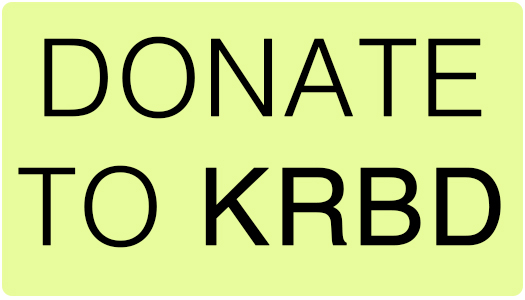
Syringes and vials lay atop a table at a pop-up clinic for COVID-19 vaccinations at the downtown fire station in Juneau on Dec. 17, 2020. (Photo by Jeremy Hsieh/KTOO)
Vaccine clinics run by the state’s Division of Public Health kicked off this week in Ketchikan. They’re open to people over 65 — along with doctors and nurses who aren’t affiliated with the local hospital.
Those doctors and nurses only started receiving the COVID-19 vaccine earlier this month, weeks after PeaceHealth Ketchikan Medical Center employees got theirs — including at least one that does not work with patients.
A 13-second video posted shortly before Christmas on Facebook shows PeaceHealth Ketchikan Medical Center’s childcare coordinator receiving the COVID-19 vaccine. The man smiles and gives a thumbs-up as an ER nurse delivers the inoculation.
https://www.facebook.com/pat.stack.7/posts/10215889475624553
The video caused something of a stir among independent health care providers in Ketchikan, who have had to wait.
KRBD spoke with two medical professionals not affiliated with PeaceHealth who say they’re regularly exposed to COVID-19 positive patients. They were unable to receive the vaccine in late December, even as they continued to conduct coronavirus tests and treat positive outpatients. The providers declined to be named because they regularly work with the hospital.
Dr. Diane Liljegren, a retired Ketchikan physician, says that independent health care providers were at just as much risk as doctors at PeaceHealth’s outpatient clinic. PeaceHealth clinic doctors were able to get the vaccine in the first wave.
“I think it’s really unfortunate that the vaccine distribution that was directed by the state didn’t include the smaller practices,” she said.
To understand how this happened, it’s necessary to look back at the first weeks of vaccine distribution in Alaska.
This first wave was intended for long-term care patients and staff, plus front-line health care workers regularly exposed to people with COVID-19.
But the way the state allocates the vaccine means the hospital got a batch exclusively for its own employees and contractors. And that meant someone like a daycare provider who works directly for a hospital was ahead in the queue — even though their exposure to COVID-19 patients was less likely than someone in an independent health clinic.
The system isn’t broken. It was designed this way. A state health department committee tasked with setting priorities for vaccination, the Alaska Vaccine Advisory Committee, decided the first wave should go to hospital employees, regardless of their position. They could be physicians and nurses or security guards and cleaning staff, as long as they were necessary to keep the hospital running and were frequently exposed to the coronavirus .
State health officials say they’re tracking who’s getting the vaccine. But hospitals had wide discretion on who got the jab.
Dr. Anne Zink, the state top’s medical officer, said Thursday that the marching orders are clear: follow the guidelines and make sure no doses spoil.
“We tell providers to not waste vaccine, so they should go through the tiers,” she said.
Meaning the state is telling providers to first vaccinate people who clearly fit the state’s guidelines. And if there are extras?
“Keep looking down the tiers to figure out who is the highest risk person they can give that vaccine to,” she said.
Recently, that’s meant some providers are calling people under 65 to receive a vaccine. On Prince of Wales Island, lower risk groups were called after not enough over 65 seniors had registered with the Alicia Roberts Medical Center in Klawock.
PeaceHealth defended its decision to inoculate its day care coordinator — the hospital argues he has “indirect exposure” by supervising the children of doctors and nurses who work on the front lines. Hospital housekeepers, food service staff and employees that sterilize hospital equipment also have the potential for indirect exposure and were eligible for the initial wave.
PeaceHealth isn’t saying exactly who on its staff has or hasn’t been vaccinated. There are issues with patient privacy. But in a statement, the hospital said administrators who don’t see patients and those who work remotely have not received a dose.
Ketchikan physician Liljegren said she’s not pointing fingers at anyone. It may not have been practical to send doses to small clinics.
“Some of these practices have one nurse practitioner, and some of them have no staff, or one staff,” she said.
She said she understands why some nurses and doctors in the community are frustrated.
“I think that the rollout is going to have all sorts of bumps in the road. And I think we’re all going to get vaccinated, and it’s going to get better, and it’s going to get smoother. And we have to hold our breath and be patient,” she said.
The Washington state operator of Ketchikan’s hospital says it embraces its role as an “active collaborator in the vaccine roll-out in our community” and is working to ensure that everyone eligible for the vaccine can receive it.
Ketchikan’s lead public health nurse told KRBD earlier this month that around 700 doses are expected to arrive this month, though officials say that number may fluctuate. That’s enough to vaccinate about a third of the community’s seniors 65 and older.
This story has been updated to clarify that healthcare providers unaffiliated with a hospital were eligible for the COVID-19 vaccine in early January.








